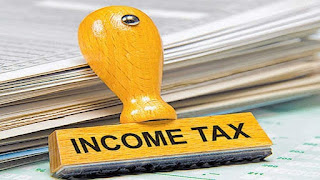Avoid using credit card to pay tax on new e-filing portal. Here's why
The Central Board of Direct Taxes (CBDT) recently launched the new income tax return e-filing portal. The new website has many features which will make it easier for taxpayers to file their returns. One of the features of the new portal is the addition of different payment options.
Taxpayers will be able to pay tax via netbanking, UPI (Unified Payments Interface), RTGS (Real-Time Gross Settlement), NEFT (National Electronic Funds Transfer) and even credit cards. Note that until now, taxpayers had the option to pay only via netbanking of large private and public sector banks. Even most small private sector banks or foreign and cooperative banks were not part of it. The added options will make it easier for taxpayers to file returns.
It is no secret that for many taxpayers, it was difficult to make payment online via net banking since their banks were not part of the I-T department’s system. As per chartered accountants, some clients even checked if they could transfer the money to them and whether they can pay on client's behalf. With more payment options, especially credit cards, it will be more convenient for taxpayers to pay tax.
While credit card will now be one of the options for payment, experts advise taxpayers to use it as last resort. Credit card bill payment is a crucial financial task and failing to do so can result in high interest, debt trap and low credit score. If you plan to using a credit card to pay tax, ensure that you repay on time.
Not paying credit card bills on time has serious consequences. Aside from impacting your credit score, delaying credit card payment will result in you paying a late fee. Your next billing statement will also include a fee for late or missed payments. Also, if your payment is late every month, you will be charged a late fee payment or less than the minimum payment.
Also, remember that you have to pay a 1% penalty on the tax due if you miss the advance tax payment and another 1% if you miss the deadline for filing income tax. Usually, taxpayers can file belated returns until 31 December. This year, the deadline for late returns has been extended by a month. If a taxpayer ends up revolving credit card outstanding, the interest charges will be far higher.
Failing to repay the entire credit card bill by the due date will incur finance charges on the unpaid bill. The charges usually range between 30-49% per annum on the unpaid credit card bill. Non-payment of the entire credit card bill can also lead to the revocation of the interest-free period on fresh credit card transactions.
Additionally, the finance charges or the annual percentage rate on credit cards are typically upwards of 3% a month. In some cases, it can even be as high as 4%. While the government only charges simple interest on the tax due, credit card issuers charge interest on interest (compound interest).
For instance, if you pay Rs 50,000 as tax using a credit card and can repay only 25,000 each month, you will end up paying Rs 2,364 in finance cost over a period of three months. Also, GST will be charged on the interest as well. The government, on the other hand, charges simple interest on the outstanding amount meaning if you delay paying Rs 50,000 for three months, a penalty of 1% will be levied each month and you will end up paying Rs 1,500.
While the new e-filing portal will offer credit card payment facility, use your credit card to pay tax only if you can repay the issuer before the due date.
Source:https://www.timesnownews.com/business-economy/personal-finance/income-tax/article/avoid-using-credit-card-to-pay-tax-on-new-e-filing-portal-heres-why/761345
Download our App to get knowledge updates:: https://play.google.com/store/apps/details?id=com.app.gstmitra
Join Our Telegram Channel for more updates:https://t.me/praveengst




Comments
Post a Comment